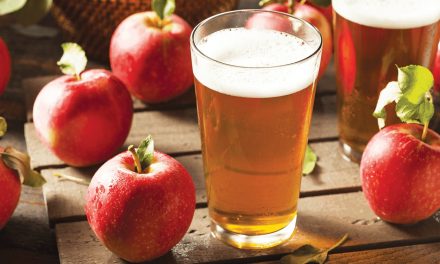 flying star cafe
flying star cafe
mindful eating on a macro scale
Photos and story by Sergio Salvador
Jean and Mark Bernstein estimate that they have served more than 20 million meals since opening Nob Hill’s original Double Rainbow along Central Avenue in 1987. Their enterprise has since grown into nine Flying Star locations, from Albuquerque to Santa Fe and eight Satellite Coffee locations and they employ more than 600 local residents. Their successful growth suggests that these local restaurateurs have done something right, but it may come as a surprise that the right being done extends well beyond a simple dollar and cents measurement.
Visiting several Flying Star cafés, it’s plain to see that a passionate force exists behind the business. The spaces are clean and welcoming, the food wholesome, delicious, and consistent. The staff comes off as helpful and happy to be there, and over the years we see that many of them stay far longer than one might expect. “We’ve worked on our concept for a long time, and it has developed in response to the things our customers have asked for over the years,” says Mark. He goes on to describe the Flying Star commitment as a ‘best practices’ paradigm, fostered through systematic checks and balances, ensuring that the core principles of quality food from scratch, superior service, consistency and cleanliness are adhered to at every location, all of the time. For the diner, the experience comes off as approachable and satisfying, thanks to a complex, behind the scenes operating system.
Self-described food fanatics, Jean and Mark Bernstein have spent years studying, researching and educating themselves on the food and supply chain. Their encyclopedic fervor in describing the controversial series of events that take place from farm to table is both enlightening, and sobering. As you would expect, their fervor spills over into developing ways their Flying Star cafés can serve as many locally grown and produced foods as possible, as well as antibiotic and hormone free, humanely-raised meats whenever possible. Their unwavering commitment to clean food is so important that they’ve created two full-time positions devoted to nothing but sourcing ingredients that meet their strict criteria.
A vegetarian herself for the better part of 39 years, Jean has subtly and meticulously developed a menu at Flying Star that features tasty, meatless dishes and vegetarian and vegan specials. Substitutions include the popular ‘MOO-ve Over Meat’ Burger and (perhaps most importantly) listing meat as an ‘add-on’ for a majority of items on the menu. This subtle vegetarian aesthetic extends beyond the obvious concern for health. The Bernsteins are also committed animal rights activists, and have long struggled with the role they play, as large-scale restaurateurs, in the ongoing fight against what she describes as a ‘frightening industrialization of food’ and the subsequent treatment of the factory-farmed animals. Ironically, as the Flying Star brand has grown, their increased purchasing power has become their most powerful tool to implement the kind of change they seek on a much larger scale. The end result is a benefit to the customer in terms of not only taste and health, but peace of mind as well. “We feed millions of people each year, and it’s a responsibility we take seriously,” says Mark. “Ours is not the cheapest menu in town, but we are confident that nobody provides a better value. At the end of the day, cheap food has a high cost that we feel our customers are not willing to pay.” This cost, Mark points out, dilutes the taste and nutrition that a good meal should provide and compromises our ability to make personal choices, as the discount culture that has come to dominate our society, chokes out purveyors of quality ingredients. According to the USDA, the percentage of American’s income spent on food has steadily declined from 20.6% in 1950 to 9.8% in 2008, as factory farming, conglomeration and genetic modification push down production costs.
The Victories:
Jean says it best: “As we have grown larger, we have prioritized. Where can we make the most impact with our buying power?” Flying Star has long struggled to reconcile its size with its buying practices. In the early days, the company was held hostage by suppliers with limited lines of products that fell short of their directives: additive-free foods, zero trans-fats, humanely-raised meats and local and organic foods and vegetables when possible. Often, they turned to smaller producers, but as the company grew, smaller purveyors struggled to keep up with the demand placed on them. Before long, the Flying Star became an increasingly critical customer for distributors like Sysco – whom Jean describes as a “surprisingly good sport, that has willingly considered and often met, our demand for alternative products.” Their demand made these products available through the larger suppliers, not only to the Flying Star, but to other restaurants as well. “We use our size to cultivate and educate a variety of suppliers. Our philosophies have sometimes made for strange bedfellows, but that’s fine as long as we’re getting what we want.” A case in point: Flying Star was the first restaurant customer of Sysco Foods for organic tofu, organic soymilk and organic white and brown rice, all of which were added to their supply chain because of the Bernsteins’ demand for these products. But that was over a decade ago, and there are bigger irons in the fire today.
A recent victory for Flying Star and ultimately for New Mexico, is the formation of Heritage Ranch, a collective of local ranches providing source-verified meats that are processed using the humane Temple Grandin slaughtering system. Flying Star’s incessant clamoring for local products wherever feasible, has helped to spearhead this collaborative effort between the New Mexico Beef Council, Sysco Foods and other conscientious New Mexico restaurants to make humanely-raised, New Mexico-grown beef available locally on a large scale for the first time ever. Having sold over 138,000 burgers alone in 2009, Flying Star will undoubtedly be, by far, the new collective’s largest customer.
The Flying Star’s commitment to local products extends beyond beef. The honey they use comes from B’s Honey Farm in Edgewood, their goat cheeses from Old Windmill Dairy in Estancia, NM, and their famous turkey sausage from Eagle Rock in Albuquerque. Milk comes from Creamland Dairy, and tortillas from Albuquerque’s Sabroso Foods. Obtaining local produce can present a reliability problem, but when possible Flying Star buys locally-grown vegetables. In August and September, a large portion of the tomatoes they use come from their own farm in the North Valley, while all chile comes from the Hatch/Deming area. When they do go out of state for ingredients, it’s because the product they are getting meets their requirements better than anything offered locally. “There is no natural producer in the state of NM that can supply the amount of chicken or eggs we use. We have tried, but when you serve almost 40,000 meals per week, key ingredients must be sourced from reliable producers,” laments Jean.
According to Mark, Flying Star buys just over 1.6 million eggs per year. In an unlikely turn of the tables, the Flying Star has convinced (by way of their buying clout) the massive egg factory Cal-Maine to tailor a voluntary Certified Organic and American Humane® Certified program for them. They wanted to provide their customers with a product they could feel good about, at a price that makes sense. Every egg sold at the Flying Star comes from a certified farm in this program. This may not be a perfect solution as Cal-Maine continues to produce the majority of their eggs on farms that are not certified, but as this program develops and is picked up by other restaurants and conscientious buyers, the momentum being generated represents a considerable step in the right direction.
“We don’t judge our customers and Mark is not a vegetarian. If they want meat, we do everything we can to provide the humanely-raised, drug-free variety,” says Jean. With this in mind, she recently visited the headquarters of Springer Mountain Farms, just north of Atlanta, where the restaurant buys 100% of the 90,000 pounds of chicken they plate each year. The chickens live in community ‘houses’, not cages, and Springer Mountain Farms’ chickens are vegetarian-fed with pesticide-free feed, completely drug-free and carry the American Humane® Certification, a distinction that, according to their website, they are the first and only chicken company in the world to carry. American Humane Certified works with producers to ensure that their animals are raised humanely and that every product that bears the label has come from producers that have met the high animal welfare standards of American Humane. It’s a seal that’s becoming increasingly important to a growing number of American consumers concerned about animal welfare, as well as the safety and quality of their food. “These chickens were treated very well and we are proud to carry them on our menu” states Jean.
In the same way that the Flying Star shuns the cheaper food products, widely available to them, in favor of more mindful ones, the restaurants opt for 100% biodegradable straws, and cold to-go cups & lids that are 100% compostable. All napkins, toilet paper & paper towels at the restaurant are made from 100% recycled fibers and all Flying Star delivery trucks run on biodiesel.
The process of buying products for a restaurant the size of Flying Star is very complicated, as Jean points out: “We could easily get overwhelmed with our own buying program, but we try our best to focus on honoring what is important to us, as best we can. Mark and I love what we do and it gives us the energy we need to map out an overall game plan for our restaurant. But at the end of the day, it’s the hundreds of people working here that make it happen. Our people are by far our most important ingredient!”
Edible celebrates New Mexico's food culture, season by season. We believe that knowing where our food comes from is a powerful thing. With our high-quality, aesthetically pleasing and informative publication, we inspire readers to support and celebrate the growers, producers, chefs, beverage and food artisans, and other food professionals in our community.











